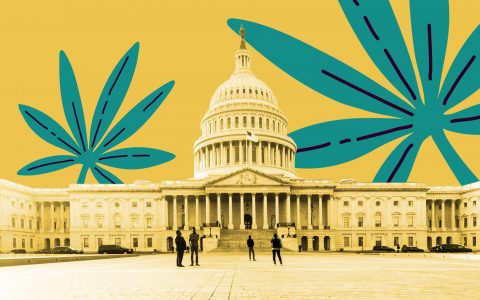
Members of a Congressional committee have, for the first time, advanced legislation to facilitate clinical cannabis research by allowing scientists to access marijuana and marijuana products manufactured in accordance with state-authorized marijuana programs.
Members of the House Energy and Commerce Committee voted today in favor of a substitute version of Congressman Earl Blumenauer’s HR 3797: The Marijuana Research Act of 2019. The substitute language amends the original bill by expediting the approval process for federal cultivation applicants and by providing scientists with the option to utilize products manufactured by state-licensed sources. Under current policy, FDA-approved protocols involving cannabis are strictly prohibited from utilizing cannabis grown under a state license.
“As momentum grows in our effort to end the failed prohibition of cannabis, we also need to address failed drug laws like the ones that make it extremely difficult for researchers and doctors to study cannabis. With some form of cannabis legal in nearly every state, it’s inexcusable that the federal government is still blocking qualified researchers from advancing the scientific knowledge of cannabis,” Rep. Earl Blumenauer said. “The bipartisan support of our legislation in today’s committee markup is an important step in removing unnecessary barriers to medical cannabis research and ensuring that patients, clinicians, and consumers can fully understand the benefits and risks of cannabis.”
“This proposed regulatory change is necessary and long overdue,” NORML Deputy Director Paul Armentano said. “In fact, NORML submitted comments to the US Federal Register in April explicitly calling for this change.”
He added: “Rather than compelling scientists to access marijuana products of questionable quality manufactured by a limited number of federally licensed producers, federal regulators should allow investigators to access the cannabis and cannabis-infused products that are currently being produced in the legal marketplace by the multitude of state-sanctioned growers and retailers. Doing so will not only facilitate and expedite clinical cannabis research in the United States and provide important data regarding the safety and efficacy of real-world products, but it will also bring about a long overdue end to decades of DEA stonewalling and interference with respect to the advancement of our scientific understanding of the cannabis plant.”
Under the existing regulatory system, which has been in place for some five decades, there is only one federally licensed entity — the University of Mississippi — that is permitted to cultivate marijuana for use in FDA-approved clinical studies.
Scientists have consistently criticized the poor quality of the University’s plants, which they say fail to accurately reflect the varieties of marijuana commercially available in the United States.
According to the federal government’s marijuana menu, scientists may currently select from no more than six varieties of pre-rolled cannabis cigarettes – none of which possess THC concentrations above seven percent or CBD concentrations above one percent. Other types of cannabis-infused products, like tinctures and concentrates, are not available for clinical study.
In 2016, the US Drug Enforcement Agency pledged to expand the pool of federally licensed entities permitted to grow cannabis. But, to date, the agency has failed to act on more than 30 applications before them.
Armentano concluded: “Legislative action is necessary in this arena because the DEA has proven time and time again that it is not an honest broker in this process. Despite promising over four years ago to expand the pool of federal licensees permitted to provide cannabis for clinical research, the agency has steadfastly refused to do so — leaving scientists with woefully inadequate supplies of cannabis and cannabis products available for human studies. The reality that most high-schoolers have easier access to cannabis than do our nation’s top scientists is the height of absurdity and an indictment of the current system.”
While the total number of peer-reviewed studies specific to cannabis has increased significantly over the past decade, a recent analysis published in Science Magazine affirmed that bulk of federal monies provided to fund this research is directed toward assessing “cannabis misuse and its negative effects.”
Today’s legislative advancement comes on the heels of the House Leadership announcing an upcoming vote on The Marijuana Opportunity, Reinvestment, and Expungement (MORE) Act, HR 3884 which had a legislative hearing in the Energy and Commerce Committee earlier this year. The committee is expected to waive its jurisdiction of the MORE Act in advance of an anticipated vote the week of September 21st. In the last two weeks, voters have utilized NORML’s action center and sent over 20,000 messages to Congress in support of the MORE Act.
For additional background on the issue of cannabis research, please see the op-ed, “The federal government must stop stifling medical marijuana research,” published in The Hill newspaper here.

